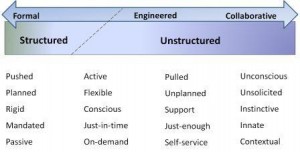
The value of sales coaching cannot be ignored. Various studies across the last 30+ years have demonstrated that regular coaching improves recall and retention of learning from sales classroom training at between 80-95%, as compared to 13% with no follow up coaching. Coaching helps improve sales performance by around 20% when compared to a non coaching environment. Yet, many sales managers maintain they don’t have the time to perform coaching, the most important of all sales leadership tasks. Go figure! One of the main reasons why sales managers think they do not have enough time to coach is that they think sales coaching has to be a formal sit down session conducted in a quiet room. Far from it… it is possible to coach anywhere, any time. What is needed is awareness of what to pay attention to and have the coaching skills and resources ready for your many sales coaching moments. Before we dive into sales coaching moments it may help to review what coaching actually is:
- Coaching is about helping people lift the bar of their performance.
- Coaching is about moving forward not looking back (that is counseling).
- Coaching is about helping people find the answers to: ‘How can I be the best I can be?’ and ‘what do I need to do to get there?’
Coaching is…
- Working in collaboration with a person to help them identify and remove any interference that limits the expression of their full potential
- Helping a person set goals and take action to ensure sustainable behaviour change
- Helping a person improve the quality of their working and/or personal life, leading to improved organisational and/or professional/personal effectiveness
- Above, all, coaching is about helping people self-actualise and reach the pinnacle of their competence
It certainly helps to be trained in how to coach effectively to deliver on all of the above and it cannot go without saying that the only way you will be an effective sales coach is if you get out there and start coaching. Sales is one of the best environments in which to coach. There are so many variables to contend with and so many insights to be obtained. So many coaching moments. You do not have to be in a quiet room one-on-one to start coaching. Sales Coaching Moments So what do sales coaching moments look like? And how does a sales manager make time for sales coaching? Sales Coaching moments come in two main forms:
- Strategic or Formal Coaching:
- Strategic or Formal Coaching implies an agreed upon, ongoing relationship with a team member in order to achieve change over time. It usually involves an agreement around a coaching program at regular intervals for an agreed amount of time. There is usually a consistent focus of the coaching sessions (e.g. shifting or enhancing skills over time).
- Strategic or Formal Sales Coaching looks at trends in behaviour across sales processes (sales planning, prospecting, solution selling, Key Account Management, etc.), sales pipeline, territory management, sales input activities, deals that affect strategic and long term development goals. This type of coaching usually includes activity pipeline (Input & Output measures). It looks at career progression including knowledge, skills, mindset. It usually happens once a month on average.

- Informal or Deal-based Coaching:
- Informal coaching can occur naturally in a conversation around a ‘coachable issue’. It is a very useful process for on the job development where the leader wants to move beyond a ‘tell’ approach to encourage the team member to discover the path forward for themselves.
- Informal Sales Coaching or Deal-Based Coaching usually targets performance obstacles within a specific deal or at sales process stage. It is more immediate, more spontaneous, and often happens in the field. It may be organised as a result of skills focused sessions. It is practical and outcomes oriented. It happens as close to the event as possible, either before or after the sale. As a sales coach you are often shadowing for the day, in direct observation of a sale, or listening in on a call. It can include role playing, debriefing details of a call, and provides a greater level of feedback and training.
Using a combination of both of these coaching strategies is important as the formal coaching process ensures that there is a structure approach to the development of your team members. However, the informal coaching acts as an excellent support to the formal coaching strategy (particularly where there is a month or more between formal coaching sessions) and examples from informal coaching can be drawn into the formal coaching sessions as a means of enhancing the coaching process. So what conclusions can we draw from this? You are likely to have many more informal deal based sales coaching moments than formal. To help you help coach your people we suggest you start your day with an open and prepared mind – be alert and ready to sales coaching moments, especially the spontaneous, informal moments. They often take up very little time but can produce very big results. Gallup research also demonstrated that there is a very significant connection between outstanding salespeople and their managers. You know it. We know it. Sales Coaching pays dividends on many levels. You want to improve sales? Get to it… get those coaching moments happening. If you need further information on how to be a better sales coach please call us on 03 9533 0000. Remember everybody lives by selling something. Author: Sue Barrett, www.barrett.com.au


New Article Email Notification